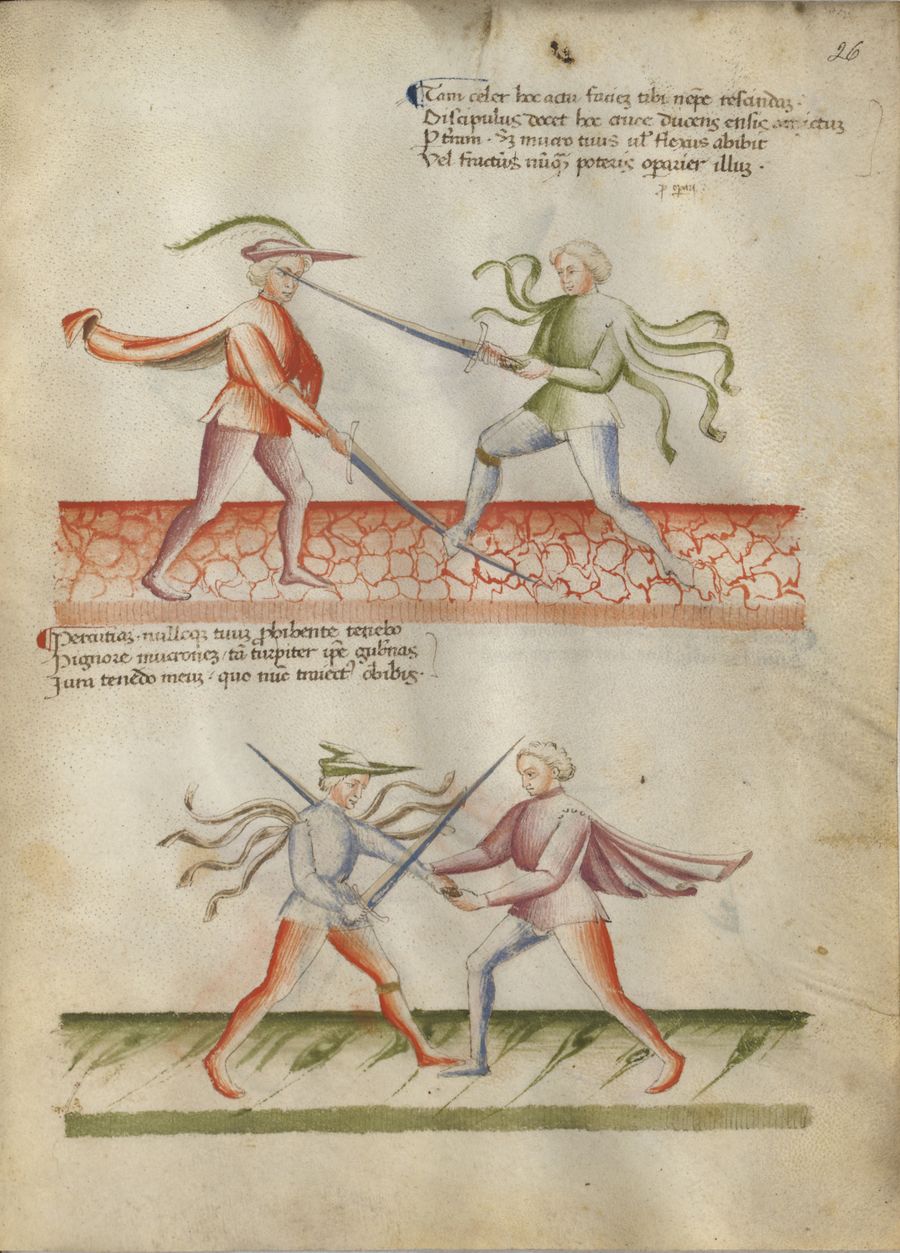|
|
You are not currently logged in. Are you accessing the unsecure (http) portal? Click here to switch to the secure portal. |
Difference between revisions of "User:Kendra Brown/Florius/English MS Latin 11269 26r"
| Line 11: | Line 11: | ||
I come to cut your face because of my swiftness;<br/> | I come to cut your face because of my swiftness;<br/> | ||
And your sword will end up bent or broken<br/> | And your sword will end up bent or broken<br/> | ||
| − | And it will no more be able to work or | + | And it will no more be able to work or bargain. |
| {{section|Page:Pisani-Dossi MS 21a.jpg|21a-c}} | | {{section|Page:Pisani-Dossi MS 21a.jpg|21a-c}} | ||
|- | |- | ||
Revision as of 20:52, 5 December 2023
Latin 26r
- ¶ Tam celer hoc actu faciem tibi nempe rescindam.
Discipulus docet hoc cruce ducens ensis amictum
Per terram. Sed mucro tuus vel flexus abibit
Vel fractus numquam poteris operarier[1] illum.
¶ Percutiam nulloque tuum prohibente tenebo
Pignore mucronem / tam turpiter ipse gubernas
Jura tenedo meum. quo nunc traiectus obibis.
Italian
|
From the crossing at the ground which the Scholar makes |
[21a-c] Per lo incrosar de terra che fa lo scolar |
|
Because of your hilt which I hold in my hand, |
[22a-b] Per lo mantiger[!] tuo che in man io tegno |
English 26r
¶ Nevertheless, I, the Swift One, would truly cut out your very own face using this act
[Alternate] Nevertheless I would be shielded [and] truly cut out your very own face using this act[2]
The student teaches this: leading to the act of cloaking the sword in the ground from the location of the cross[3]
But your point will either change to a twist/curve
or be broken. You can never again use that [sword]
¶
- ↑ Added later: "pro operarj".
- ↑ celer can either be an adjective or a verb, leading to two possible readings. celer as an adjective follows other patterns set in the text. celer as a verb links to the act of cloaking, amictum, in the next line.
- ↑ cruce is locative case, which the translation reflects

